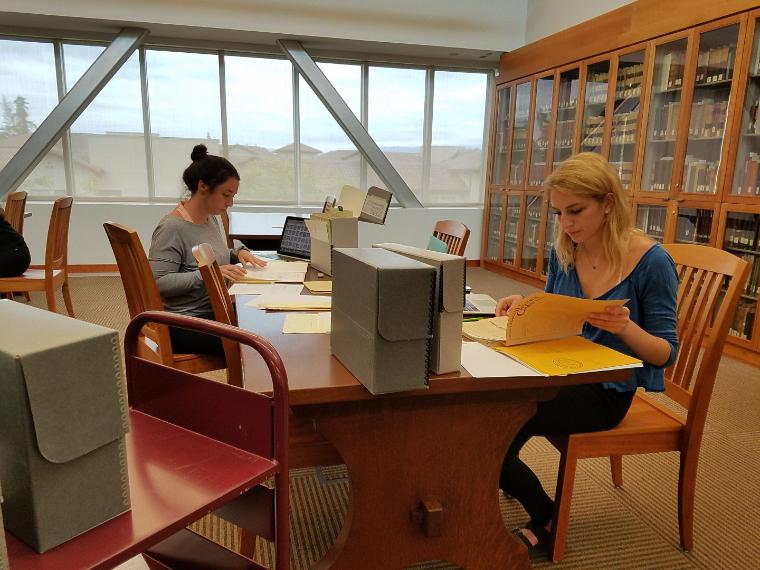Analog | Digital
June 7 - September 16 , 2018

Fragile paper has the capacity for generating an explosive experience, so that perhaps we should rather say "letting the archives loose among the undergraduates," exposing them to all kinds of dangerous enchantment and unorthodox reactions. — Hugh A. Taylor, Canadian Archivist, 1972
What happens when faculty who teach undergraduates use primary sources in the classroom? How proficiently do undergraduates, long perceived as lacking the maturity, life experience, and specialized skills to do so, conduct research using archival and special collections? What do we risk by letting them form their own opinions and draw their own conclusions while working with these materials? What do students gain during their journey of personal discovery? Finally, what happens at the intersection of digital technology and the kind of traditional humanities research conducted by faculty and students using the rare and unique materials housed in the Library?
During the spring 2018 quarter, faculty and students in three English classes used Archives & Special Collections materials to explore themes of feminism in local, national, and international history in a variety of media: various editions of Mary Shelley's gothic novel Frankenstein; Or, the Modern Prometheus, in celebration of its 200th anniversary; digital and physical exhibits exploring the history of women at SCU documented in the University Archives; and a digital edition of the 1836 novel The Awful Disclosures of Maria Monk, plus the physical exhibit of nearly 30 other print editions from the Jesuits in Fiction Collection.
This exhibit was featured as part of this year's digital humanities showcase, a collaboration between the English department and Archives & Special Collections. Part of the Center for Arts and Humanities, digital humanities (DH) initiatives at SCU connect faculty, staff, and students across departments and schools who use digital methods to conduct research centered on the human, and those who ask humanistic questions of digital tools and methods. DH is deeply interdisciplinary, collaborative, and welcoming to all researchers from across the arts and sciences invested in reflecting on the intersection of the human and digital that is at the core of the identity of SCU as the Jesuit university in Silicon Valley.
Learn more about the exhibit displays on these student-created websites: